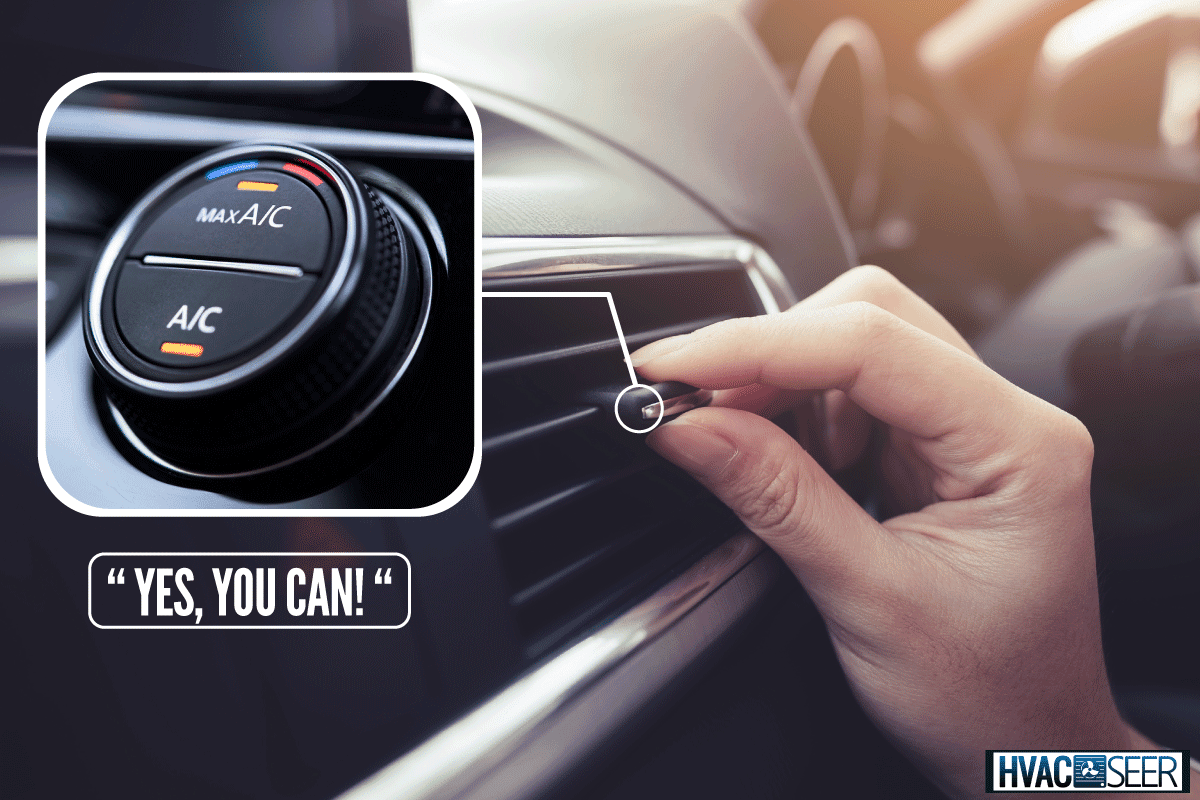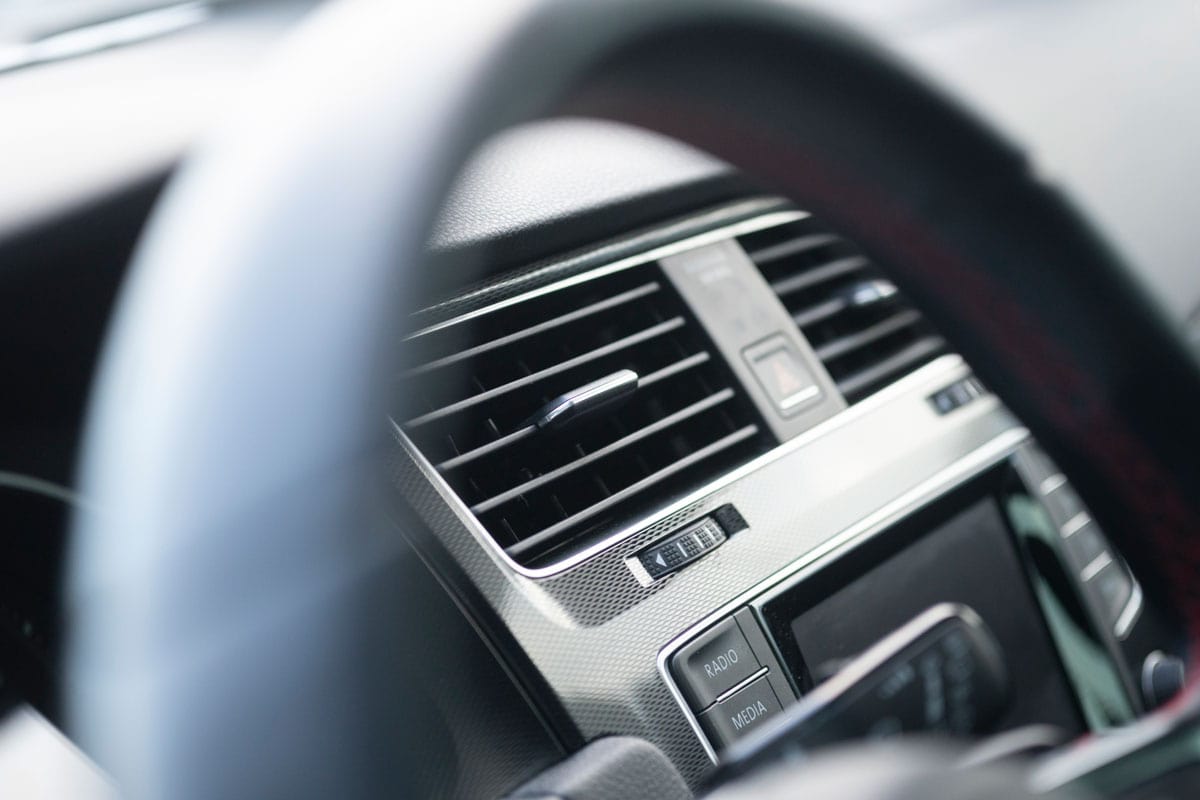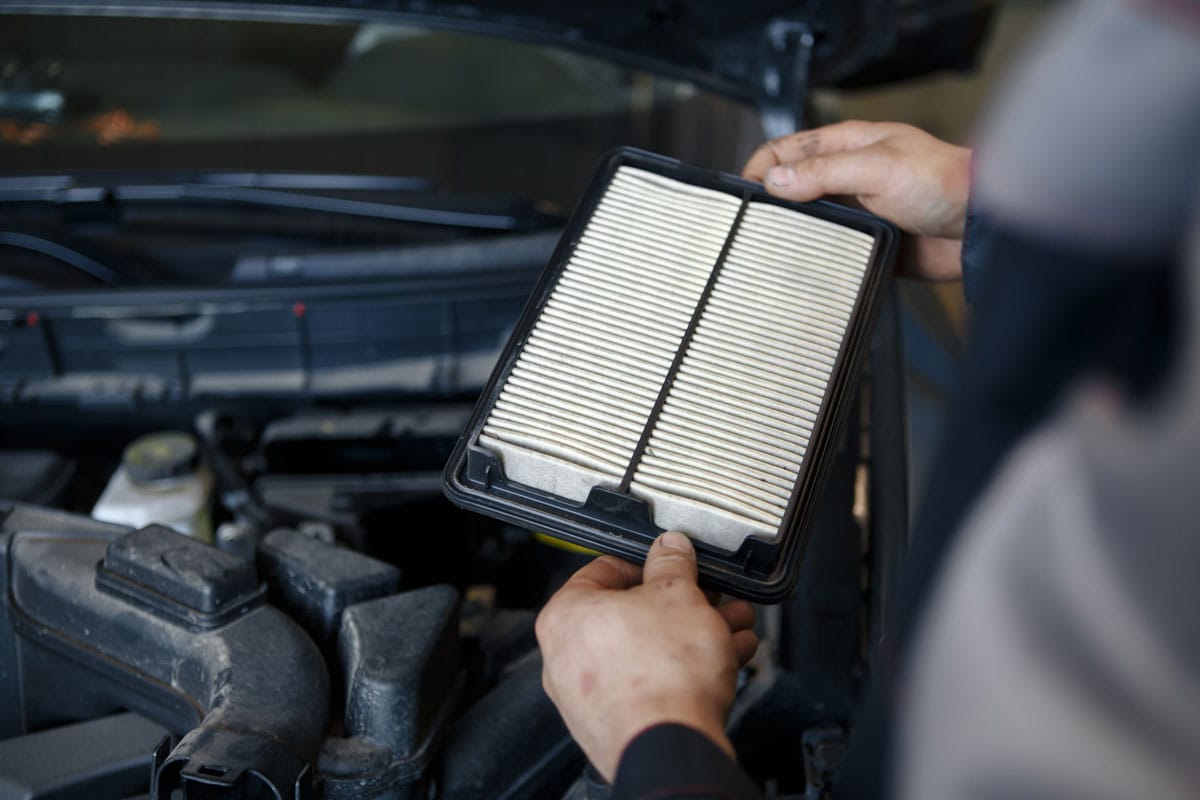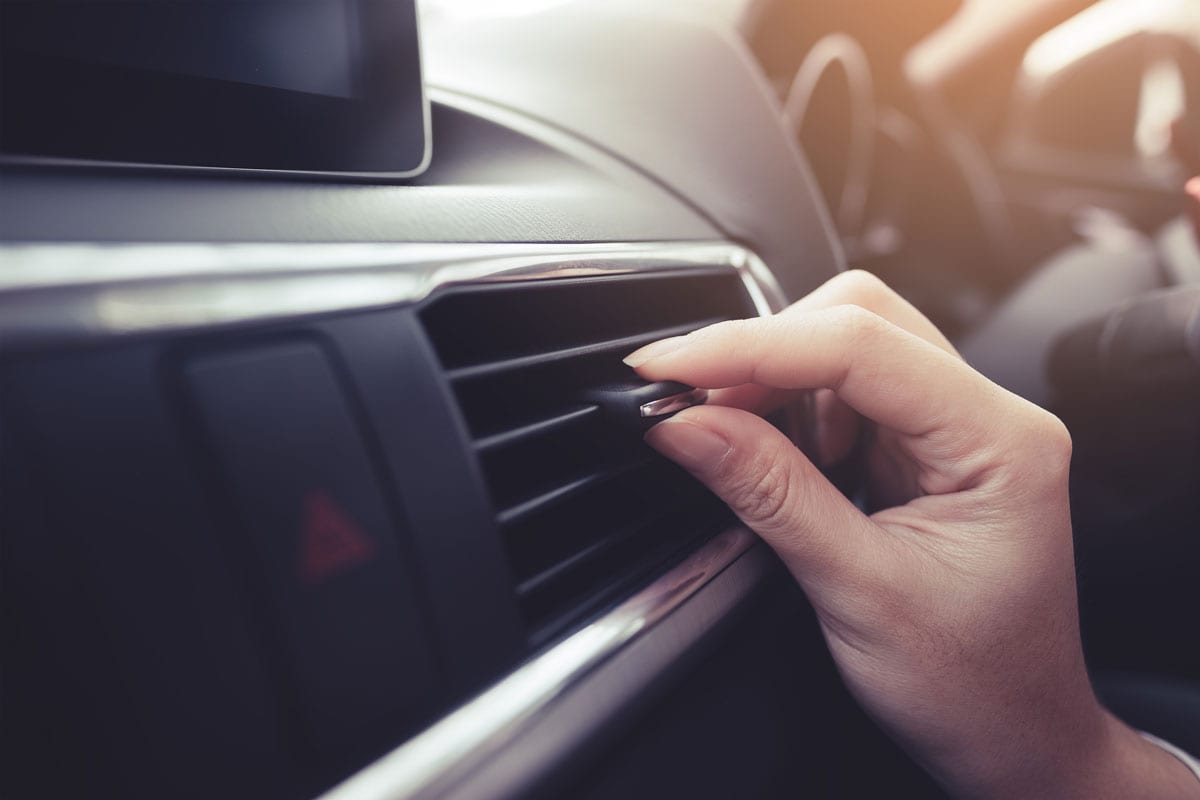Your car isn't just a vehicle; it's a sanctuary. Taking road trips while a favorite song plays is meditative. And your car shelters you when it's warm or after an exhausting work day. So, you may be curious if you can leave your car AC on at all times. We've done the research and are happy to share what we found!
You can leave the car air conditioner on for as long as you want. However, if you will be away for a long time, it's best to turn off your AC when you don't need it. Save fuel, electricity, and prevent your car from overheating.
If you are mindful of your car's AC use, you'll enjoy reliable cooling and comfort. You may also have questions about sleeping in your car with the AC on, or wonder how to maintain your car AC. So, keep reading to learn more!

Can I Sleep In My Car With AC Running?
Yes, you can sleep in your car with the AC running. But before enjoying a sweet nap, check out these tips to ensure your safety and comfort.

1. Safe Parking
If you're tired from driving or work, pull over and park your car in a safe space and rest. Parking regulations from city to city and establishments may differ, so familiarize yourself with this to avoid parking tickets and violations.
2. Car Windows
If the weather is not too hot, you can sleep with the windows slightly open. Avoid leaving your car's engine on if possible.
If your car's system isn't properly tuned, there is a risk of carbon monoxide poisoning. Also, leaving the car running could cost you more. Use sun shades or covers to create privacy.
Click here to see this EcoNour Car Windshield Sun Shade on Amazon.
Check out this Enovoe Car Window Shade on Amazon.
Again, be sure to park in a safe place and lock the doors. And if in doubt, let a family member or friend know your location.
3. Seatbelts
For your safety, keep your seatbelt on, and don't lean your seat back too far. In case of a crash, you'll have better protection from harm because of the airbags and properly using your seatbelt.
4. Neck Pillows
Are you someone who can't sleep without pillows? Neck pillows or cervical pillows are perfect for comfortable traveling. Experts say using pillows with good neck support can improve rest and sleep quality. They can also ease neck pain or sore muscles.
Click here to see World's Best Soft Microfiber Neck Pillow on Amazon.
Can Car AC Cause Carbon Monoxide Poisoning?
Carbon monoxide poisoning isn't something that happens when you turn on the AC. It occurs when there's a leak in your car exhaust or if there's a defect in your emission system when operating the vehicle.
Sometimes, carbon monoxide poisoning occurs when a vehicle is running in an airtight garage. Also, this happens when people become stranded or trapped inside their automobiles, or they drive with a faulty engine.
Carbon Monoxide
Carbon monoxide, also known as CO, is a toxic gas. However, because of its odorless and colorless nature, CO poisoning victims are unaware of their exposure to this harmful chemical.
We measure CO in parts per million or ppm. WHO and other health agencies indicate that for healthy adults, CO becomes toxic if the exposure gets higher than 50 ppm. This level can be fatal, especially for kids and those with respiratory diseases.
Remember that prolonged exposure to CO can affect physical health even at lower levels.
CO Poisoning Symptoms
Since CO is undetectable, people may be oblivious of their exposure to this dangerous gas. Beware of the following symptoms:
- Low to moderate poisoning: difficulty breathing, nausea, headache, dizziness, fatigue, flu-like symptoms
- High-level poisoning: hallucination, psychological confusion, motor coordination loss, vomiting, fading consciousness, death
CO Poisoning Prevention
- Professionals should install and service the car exhaust system or engine. If you run your car often, an annual or bi-annual inspection will ensure that your engine's properly tuned.
- Avoid operating fuel or gasoline-powered tools or machines in enclosed spaces, e.g., a garage or inside the house.
- Install CO alarms or detectors. The alarms should pass laboratory and international standards. They provide additional health protection and security.
Click here to see this Kidde Carbon Monoxide Alarm on Amazon.
Car AC Doesn't Cool - What To Do?

There might be times when your AC isn't doing its job right. What should you do then? We've prepared for this, so read on! Your car AC may lose its cool, but you shouldn't lose yours! See if the following things apply:
1. Car AC Requires Recharging
This is the most common reason most vehicle ACs aren't cooling as they should. Your AC might be low on refrigerants such as Freon. This chemical is responsible for the cooling process that happens in AC systems. If that's the case, recharge the refrigerant or contact your trusted local professional.
2. AC Refrigerant Leak
Your refrigerant may have damage or leaks, which could cause a malfunction in your AC. If you are unsure how to handle the repair or replace specific parts in the system, ask for an expert's help.
3. Jammed Blend Air Door
The blend air door acts as the mediator when you regulate your AC's temperature. It receives the input signal, fulfills the request, and properly positions the air door. It closes off the warm air coming into your car and lets the cold air from your AC sweep in.
It's located deep on the rear end of your dashboard, so it can be pretty challenging to grasp. The repair, however, doesn't require new parts.
4. Faulty AC Compressor
If warm air comes in instead of cold, a faulty compressor may be the problem. It compresses the Freon or refrigerant. When the refrigerant expands, the air becomes chilly. If the compressor is faulty, then the air will not turn cold.
AC compressors can be repaired. However, the better course of action is to replace the malfunctioning compressor with a new one.
5. Defective Condenser
When the condenser is blocked or broken, the Freon gases won't cool and flow. Aside from the abnormal temperature, you may also hear loud and squeaky noises from your unit.
If there is a clog, or it ceases to function, replace it. You can prevent this problem later on with regular cleaning.
6. Electrical Issues
Parts of your AC are mainly electrical. So, a blown fuse or even a loose connection could prevent parts from working. A failed switch or complications with the control module could also be a reason.
These issues have to get fixed right away, as they could cause acid buildup. If not solved quickly, they can cause significant harm to your automobile. You could even end up replacing the whole AC system.
How Do I Keep My Car AC In Good Condition?
Just like the human body, no system is perfect. You can look healthy outside, but there may be complications unseen by the naked eye. So instead of spending more money and drowning in stress later, why not keep the problems from happening now?
Annual AC System Checkup
Annual check-ups and diagnoses will help your car be in its top shape. There are three parts that your AC mainly relies on. These are the evaporator, condenser, and compressor.
The outside of your car isn't only the one prone to damage and erosion; even the components inside do. So, if your car's AC system is over five years old, regular checkups will go a long way.
Air Filter Cleaning
A dirty car air filter can harm your AC system. It can block the airways and reduces the cooling properties of your unit. So, clean your filter and wash them with warm water and soap if needed. Dry them thoroughly and install them back correctly.

Defogging Windshields
Defog your windshields by using defrost heater strips or by activating your car's defogging function. Dry out your evaporator, too, after using your AC for extended times. Doing these things will prevent mold and odor buildup in your unit.
![]()
Final Takeaway

Now, you can enjoy resting or sleeping in your car comfortably and securely. Don't forget to follow the tips and reminders we've shared with you!
If you found this article informative and you want to learn more, check out these posts related to car air conditioner systems. Happy living!




